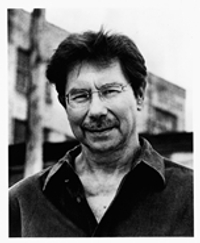Dybek's third work of fiction (his first in over 10 years, after the story collections Childhood and Other Neighborhoods and The Coast of Chicago) comprises 11 elegiac, interlocking stories narrated by Perry Katzek, a young Polish-American growing up on Chicago's racially diverse South Side in the 1950s and 1960s. Although it lacks the narrative momentum of a linear novel, the book offers a powerful, cumulative portrait of the lives of Perry, his family and the people in his neighborhood, where "it seemed that almost every day someone lost teeth at one or another of the corner bars." "Breasts" follows three men with only tenuous connections to Perry, including Joey Ditto, a gangster who keeps getting distracted from making a ruthless hit by the ethereal forms of past lovers. "Blue Boy," which begins as a tale about a sick youngster, ends as a gorgeous contemplation of loss. The strongest stories deal directly with Perry's exploits. In "Orchids," Perry and his friend Stosh try to scheme their way to Mexico by stealing exotic orchids, and in the much-anthologized "We Didn't," Perry and his girlfriend's erotic lakeshore tumbling ("Swimsuits at our ankles, we kicked like swimmers to free our legs") is interrupted by the discovery of a dead body. "I was the D. H. Lawrence of not doing it," Perry reflects, "the voice of all would-be lovers who ached and squirmed." Indeed, all of these beautifully written stories teem with aching recollections. They are lyrical odes to wasted lives, youthful desires, vanishing innocence and the transformative power of memory, which is "the channel by which the past conducts its powerful energy; it's how the past continues to love." (Nov.)


